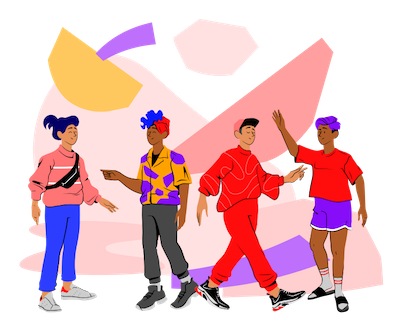|  | | | Bonjour dear learners! We've packed this issue with fascinating French words like 'flocons de neige', 'local', 'sera', 'couleur', 'parfait' and a humor touch with a lively French joke. |
| |
| |
|
|
flocons de neige The French equivalent of 'snowflakes' is 'flocons de neige'. It is used the same as in English, to describe the small individual pieces of snow that fall from the sky during a snowfall. Example: 'Les flocons de neige tombent du ciel', which means 'The snowflakes are falling from the sky.' Here's how to use it: Les flocons de neige tombent doucement sur la ville. Les enfants aiment attraper les flocons de neige sur leurs langues. Les flocons de neige sont le symbole d'un hiver blanc et pur.
| |
|
local The French word 'local' is very similar to its English equivalent 'local'. It is used to describe something that is situated or taking place in an area near you, or in the particular area that you are talking about. The usage can depend on the context; it could refer to a local establishment (like a restaurant or a shop), local produce, or local news, among others. Here's how to use it: Je suis le guide touristique local. L'autorité locale a approuvé le plan. La gare locale est à deux kilomètres.
| |
|
sera In French, the future tense of the verb 'être' (to be) would be used to translate 'will'. Specifically, 'sera' is used when talking about he/she/it will be. However, please note that 'will' can also be translated differently in French depending on its use in the context. Here's how to use it: | |
|
couleur The French word 'couleur' is used in the same context as the English word 'color'. It can refer to the various shades seen by the eye, such as red, blue, yellow, green, etc. It can be used in different contexts such as describing the color of clothes, rooms, hair, eyes, etc. In French, if you want to specify the color of an object, you generally use the construction 'de + color', for instance, 'un chapeau de couleur rouge' which translates to 'a red hat'. Here's how to use it: Cette couleur de cheveux lui va bien La couleur du soleil est jaune J'aimerais changer la couleur de mes cheveux
| |
|
parfait The French word for perfect, 'parfait', is used similarly to the English word 'perfect'. It can describe an object, person, or situation that is as good as it is possible to be. It is frequently used in everyday conversations and in various contexts. For example, you could use it to describe a test score (un score parfait), or the weather (un temps parfait). The word 'Parfait' is also used in the world of French cuisine to describe a type of frozen dessert. Here's how to use it: Il semble que le temps soit parfait pour un pique-nique. Votre français est presque parfait. Elle était la candidate parfaite pour le poste.
| |
|
😆😆😆 M et Mme Cale ont deux filles et un fils – comment s'appellent-ils? Anna, Lise, Mehdi. | |
|
| Never stop learning, Mike from LangBites PS 👉 Answer a 3 question survey to help me improve this service ☺️ | |
|
| You received this email because you signed up at LangBites.co. Click here to unsubscribe. |
| |
|
|
|

